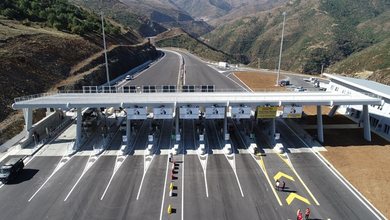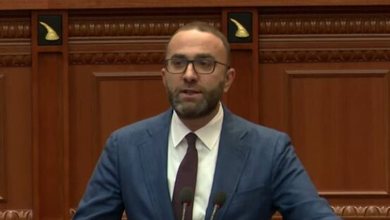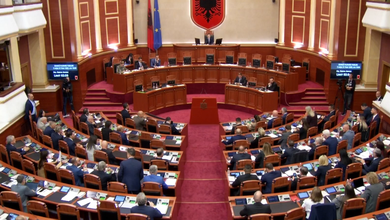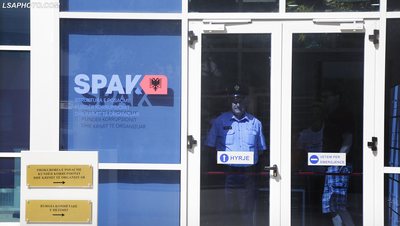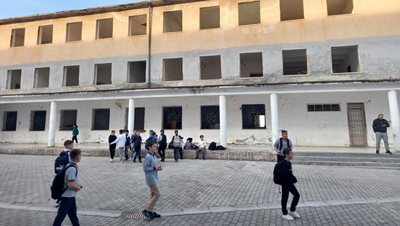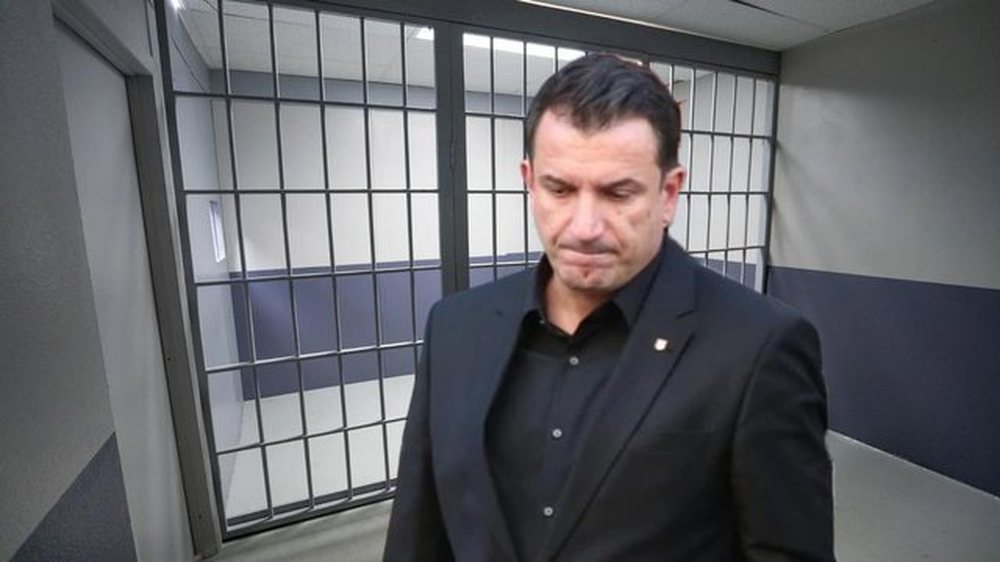
In the proposals sent to the Constitutional Court, which is expected to hold a plenary session on October 30 on the issue of Erion Veliaj's dismissal from office, the Government states that it had no other alternative but to respect the decision-making of the Municipal Council and finalize the legal dismissal procedure.
The Council of Ministers argues that Veliaj should have gone to the Administrative Court, as his dismissal was due to his failure to report to work for a period of three months, and that the act in question is individual. According to the Council of Ministers, Veliaj's dismissal was the only way to restore normality to Tirana.
Government claims
The draft decision provides for the dismissal from office of the Mayor of Tirana, Mr. Erion Veliaj, based on the proposal of the Tirana Municipal Council, approved by decision no. 69, dated 23.9.2025. The Municipal Council has taken decision no. 69, dated 23.9.2025 in the circumstances when the Mayor of Tirana has been physically unable to report to duty since February 10, 2025, due to the imposition of a personal security measure against him. Despite repeated procedural requests, the court has left the measure of imprisonment in force for the Mayor of Tirana and has not accepted the lifting of the measure, or its replacement with another coercive measure that would enable reporting to duty. The Tirana Municipal Council has determined that failure to appear for duty, in the above-mentioned circumstances and for a period longer than three months, constitutes legal grounds for proposing the dismissal of the Mayor, based on letter “c”, of article 62, of law no. 139/2015, "On local self-government", as amended.
The legal fact of the inability to appear for duty is a public fact and its truth cannot be questioned. Likewise, the concern of the municipal councilors for the serious damage caused to the needs of the capital's governance and the interests of the citizens of Tirana by the prolonged absence from duty of the Mayor cannot be questioned. The Municipal Council has proposed dismissal, as the only legally possible way in its hands in order to initiate further procedures, to restore the normality of governance in the Municipality of Tirana. This political and legal will of the elected representatives of the Capital cannot be neglected and the Council of Ministers has no other alternative but to finalize the legal procedure of dismissal. Law no. 139/2015 has provided that the dismissal procedure, for the reason specified in letter "c" of article 62, shall be finalized by a decision of the Council of Ministers, unlike most other cases of vacancy creation, which only require the establishment of the legal fact, after information received from the prefect of the relevant district. Article 62 requires a decision of the Council of Ministers for three legal grounds for dismissal. The first ground stems from the Constitution and falls within the competence of the Council of Ministers to, with political will, decide on the dismissal of the local elected body, when it ascertains serious violations of the Constitution or laws by the latter. The Constitution of the Republic of Albania establishes in its article 115 that "the directly elected body of the local government unit may be dissolved or dismissed by the Council of Ministers for serious violations of the Constitution or laws". Point 2 of this article stipulates that "the dissolved or dismissed body may appeal to the Constitutional Court within 15 days, and in this case the decision of the Council of Ministers shall be suspended". This provision of the Constitution is not intended to determine the competence in the case of the dismissal of the mayor, but is intended to protect the independence of local government bodies from the interference of other powers, by giving the mayor special protection in cases where the mechanism of political dismissal operates against him. It is no coincidence that the Constitution, which does not allow the Constitutional Court to be put into motion for acts of an individual nature, in the case of the dismissal of the mayor, which is also an act of an individual nature, has expressly determined not only the right to put the Constitutional Court into motion, but has also determined the automatic suspension of the act, in the case where an appeal is made. The above constitutional case is included with the same wording in letter "a", of article 62, of law no. 139/2015, being included separately in the list of legal causes that lead to dismissal. Other causes of dismissal by the Council of Ministers come for legal reasons,which are beyond the will of the Council of Ministers. In the case of letter "b" the legal facts are confirmed in an irrefutable manner by the judicial power (sentence by the court with a final decision for the commission of a criminal offense). In the case of letter "c" the legal fact is confirmed by the municipal council administratively and by decision-making (failure to appear at work for an uninterrupted period of 3 months). The difference with letter "a" of Article 62 lies in the fact that when dismissal occurs for serious violations of the Constitution or other laws, the defense is done with constitutional instruments (the Constitutional Court), while for other cases, the affected parties can only use administrative instruments of defense and file claims with the competent administrative court and not according to the special procedure established by Article 115 of the Constitution. Likewise, the special procedure of Article 115 of the Constitution does not apply in other cases of premature termination of the mandate, which are defined and listed in Article 61 of Law No. 139/2025. This analysis of the causes and legal remedies is important within the framework of this draft decision, because it is directly related to the intention of the Tirana Municipal Council to pave the way for the holding of partial elections for mayor of this municipality as soon as possible. 1 No. prot.Dt. The unit with the original is certified. The opposition of the decision in the Constitutional Court cannot affect its effects, because the Constitutional Court is not competent for dismissal for reasons other than those defined in Article 62 of Law No. 139/2015 and the filing of an appeal in the Constitutional Court, in the wrong body for the review of legal remedies for appeal, does not bring legal effects. Likewise, filing an appeal with the competent administrative court does not automatically suspend the legal effects of the act. established by point 1, article 115, of the Constitution and letter "a", article 62, of law no. 139/2015 and filing an appeal with the Constitutional Court, the wrong body for reviewing legal remedies for appeal, does not bring legal effects. Likewise, filing an appeal with the competent administrative court does not automatically suspend the legal effects of the act.the affected parties may only use administrative instruments of protection and file claims with the competent administrative court and not according to the special procedure established by Article 115 of the Constitution. Likewise, the special procedure of Article 115 of the Constitution does not apply in other cases of premature termination of the mandate, which are determined and listed in Article 61 of Law No. 139/2025. This analysis of the causes and legal remedies is important within the framework of this draft decision, because it is directly related to the aim of the Tirana Municipal Council to pave the way for the holding of partial elections for mayor of this municipality as soon as possible. 1 No. prot.Dt. The unit with the original is noted. The objection to the decision in the Constitutional Court cannot affect its effects, because the Constitutional Court is not competent for dismissal for reasons other than those specified in Article 62 of Law No. 139/2015 and the filing of an appeal in the Constitutional Court, in the wrong body for reviewing legal remedies for appeal, does not bring legal effects. Likewise, the filing of an appeal in the competent administrative court does not automatically suspend the legal effects of the act. established by point 1, Article 115, of the Constitution and letter "a", Article 62, of Law No. 139/2015 and the filing of an appeal in the Constitutional Court, in the wrong body for reviewing legal remedies for appeal, does not bring legal effects. Likewise, the filing of an appeal in the competent administrative court does not automatically suspend the legal effects of the act.the affected parties may only use administrative instruments of protection and file claims with the competent administrative court and not according to the special procedure established by Article 115 of the Constitution. Likewise, the special procedure of Article 115 of the Constitution does not apply in other cases of premature termination of the mandate, which are determined and listed in Article 61 of Law No. 139/2025. This analysis of the causes and legal remedies is important within the framework of this draft decision, because it is directly related to the aim of the Tirana Municipal Council to pave the way for the holding of partial elections for mayor of this municipality as soon as possible. 1 No. prot.Dt. The unit with the original is noted. The objection to the decision in the Constitutional Court cannot affect its effects, because the Constitutional Court is not competent for dismissal for reasons other than those specified in Article 62 of Law No. 139/2015 and the filing of an appeal in the Constitutional Court, in the wrong body for reviewing legal remedies for appeal, does not bring legal effects. Likewise, the filing of an appeal in the competent administrative court does not automatically suspend the legal effects of the act. established by point 1, Article 115, of the Constitution and letter "a", Article 62, of Law No. 139/2015 and the filing of an appeal in the Constitutional Court, in the wrong body for reviewing legal remedies for appeal, does not bring legal effects. Likewise, the filing of an appeal in the competent administrative court does not automatically suspend the legal effects of the act.in the wrong body for reviewing legal remedies for appeal, does not bring legal effects. Likewise, filing an appeal with the competent administrative court does not automatically suspend the legal effects of the act.in the wrong body for reviewing legal remedies for appeal, does not bring legal effects. Likewise, filing an appeal with the competent administrative court does not automatically suspend the legal effects of the act.





